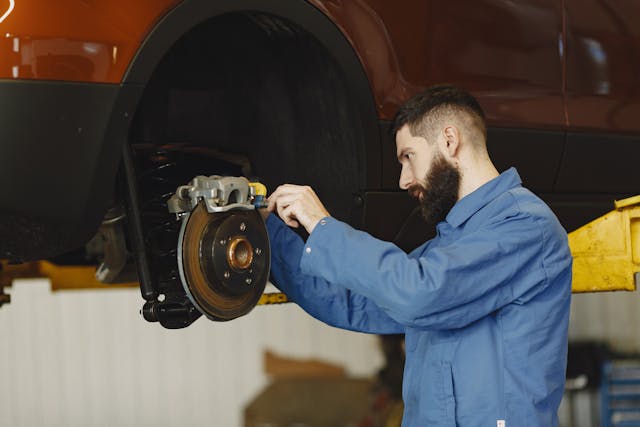
When it comes to reliable braking, most drivers think about pads, rotors, and calipers. But behind all of those components is the hydraulic system—and at the center of that system are the brake and clutch cylinders. These cylinders are responsible for generating the pressure needed to engage both the brake and clutch systems, especially in manual transmission vehicles.
Understanding the role of these cylinders is key to diagnosing performance issues and preventing brake failure. Whether you drive a daily commuter, a classic coupe, or a performance-tuned machine, here’s why cylinders are such a critical part of your braking system.
Cylinders Control Brake Pressure
At the core of your hydraulic brake system are the master and slave cylinders. When you press the brake or clutch pedal, fluid is pushed through the lines, creating the pressure needed to engage the brake calipers or release the clutch. If these cylinders aren’t functioning properly, the entire system can lose pressure—leading to soft pedals, slow engagement, and even total system failure.
Manual vehicles rely on both the clutch master and slave cylinders for smooth shifting and consistent performance. In sports cars like the Mazda RX8 Clutch Slave Cylinder, maintaining clean, leak-free hydraulic pressure is especially important due to the high-revving nature of the engine and the precision needed during gear changes.
The slave cylinder plays a direct role in disengaging the clutch when the pedal is pressed. If it’s leaking or internally worn, your clutch may not release completely—making it hard to shift gears and potentially leading to transmission damage over time.
Failing Brake Cylinders
When brake or clutch cylinders begin to fail, they typically show early warning signs. Ignoring these signs can lead to unpredictable braking performance or complete loss of pressure—especially dangerous in emergency situations or performance driving conditions.
- Soft or Spongy Pedal Feel
If your brake or clutch pedal feels soft, it’s likely that air or fluid is escaping the system. A worn or leaking cylinder can prevent proper pressure from building, which reduces your ability to stop or shift effectively. - Fluid Leaks
Leaks around the firewall, near the pedal, or under the transmission area are signs of a bad cylinder. If left untreated, these leaks reduce hydraulic pressure and create air pockets, which compromise the system. - Inconsistent Engagement
In some cases, you might notice that the clutch engages at different points in the pedal travel, or the brake system feels unpredictable. This inconsistency is often due to internal wear in the cylinder, which affects how pressure is applied.
Older vehicles like the 2000 Mercury Cougar Clutch Slave Cylinder can be particularly prone to slave cylinder wear due to mileage and age. Replacing a faulty slave cylinder in these vehicles can make a noticeable difference in clutch feel and braking control.
Likewise, for high-performance models such as the Subaru WRX STI Clutch Slave Cylinder, even minor flaws in the hydraulic system can throw off timing during aggressive shifts or spirited driving. Replacing the slave cylinder restores proper pedal resistance and protects your drivetrain from excess stress.
Your brake and clutch systems depend on hydraulic pressure—and that pressure depends on your cylinders. Whether you’re dealing with daily wear or tuning for performance, maintaining your master and slave cylinders is essential to safe, responsive driving.
From the RX8 to the WRX STI, every manual vehicle benefits from strong, leak-free cylinders that ensure smooth braking and clutch performance. Don’t wait for a warning light or total failure—inspect, maintain, and upgrade your cylinders to stay ahead of the curve.
Photo by Gustavo Fring:

